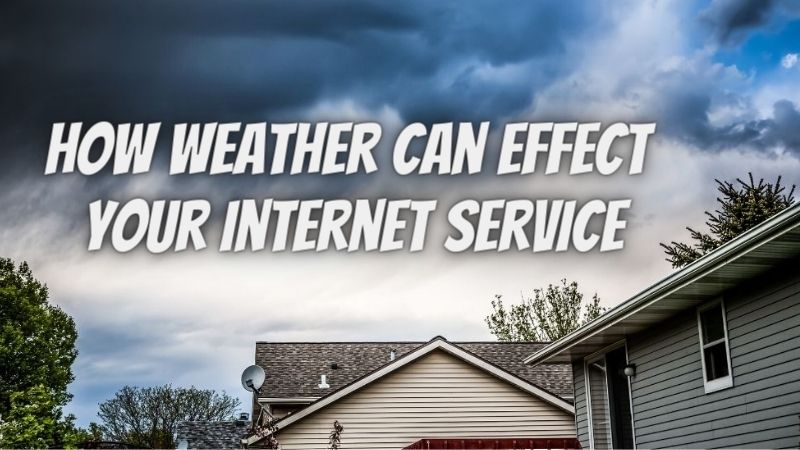While you’re on your favorite website, you might notice that your internet service goes out when it rains or during a thunderstorm. Snow can also impact your internet service. Even though the weather can play a role in a slow or absent connection, it might not be fully responsible.
Slow Speeds in Poor Weather Conditions
It makes sense that bad weather would have an impact on your broadband internet connection, especially if you rely on a satellite to go online. Internet signals that come from a power pole and that are from public resources tend to see disruptions more than those that have a cable connection. The distance you are from the router can play a part in the connection as well, even if it’s raining or storming outside.
Traffic
While the weather can slow down a connection, the traffic volume of the people who are trying to access the internet is likely a likely culprit as well. When the weather is bad outside, more people tend to be online. This means that the traffic is clogged on the lines, resulting in a slower connection. Keep in mind that internet signals can go out completely if the provider loses power or loses a connection during a storm. Rain and storms tend to keep people in their homes, which means that they are often on their phones or other devices and using the internet. When more people use the internet than usual, it can result in a slow connection that you’ll notice in your home.
Temperature
If you have copper cables or a fiber optic connection, then you likely won’t notice as many issues with the temperature and your internet service, especially in the cold. However, if the ground temperature is freezing and stays freezing for several days, then it could result in caving or breaking in some areas. This could then result in a slow connection. The wires could become damaged, which would mean that they would need to be replaced before the internet connection is restored. High temperatures might not impact the wires, but they can be a factor in how well your devices operate, such as the router. These devices can overheat, especially if you don’t keep the inside of your home cool. Try to keep a small fan near these devices so that they don’t overheat as it’s a bit more difficult to cool a router or another device down than it is for it to be heated.
During severe storms, especially tornadoes and hurricanes, trees can fall on power lines and cable lines. This will likely result in losing service for a few hours and sometimes a few days depending on the severity of the issue.
What Can You Do?
Try to reset all of the equipment that you have, such as the router and the modem. Sit closer to the router if at all possible so that you have a stronger connection. You can also plug in your devices to the router so that they have direct contact with the internet source. If you notice that your phone is connecting but not your computer, then it’s likely an issue with the connection from your provider instead of the equipment that you have. Avoid trying to fix issues on your own as this is what the provider usually offers. Wait until the weather clears to go outside to see if any equipment is broken.
